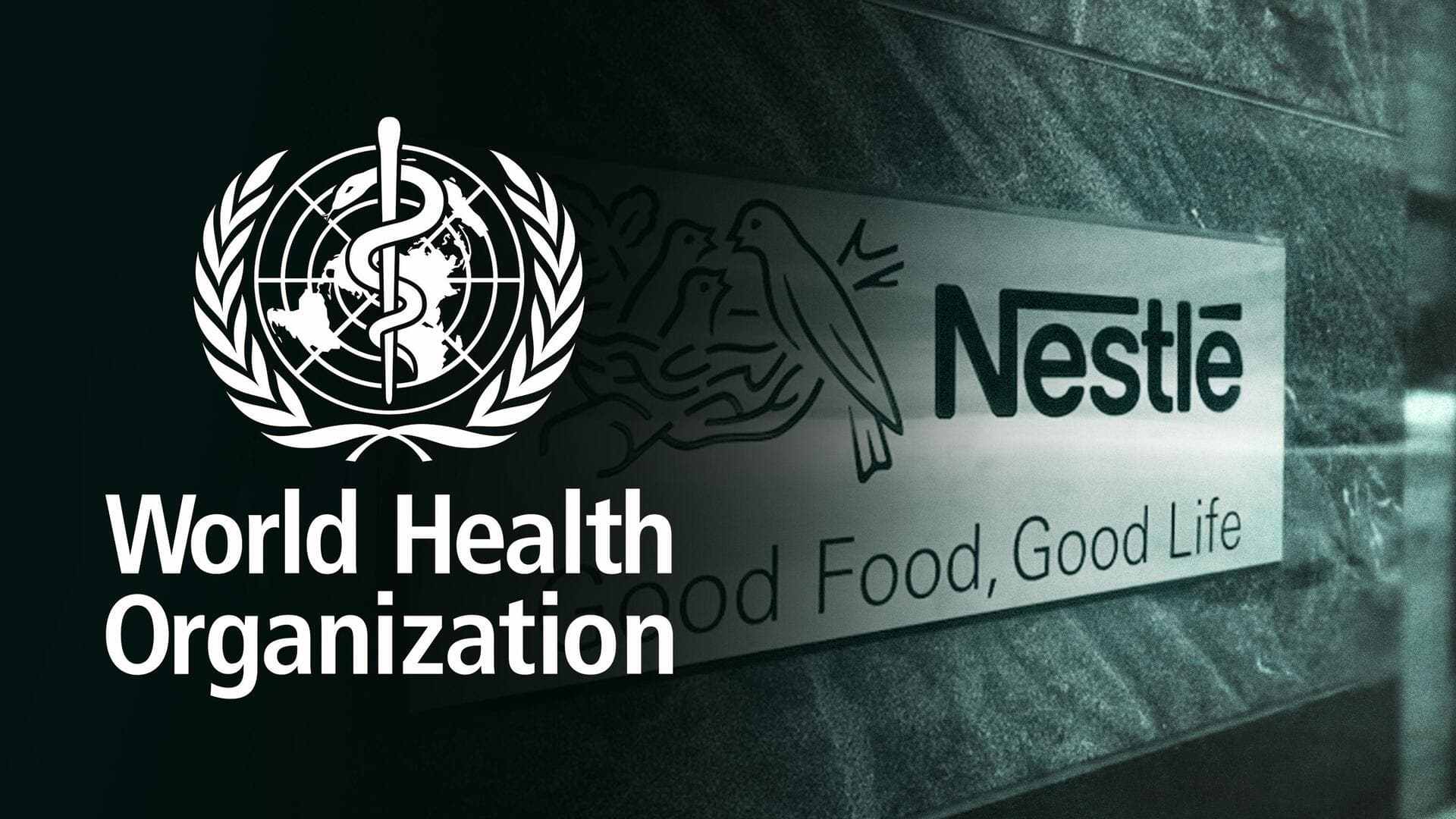
Nestle adding sugar to infant products in developing nations: Report
What's the story
Nestle, a leading global consumer goods company, is facing allegations of adding sugar and honey to infant milk and cereal products sold in developing countries. This practice reportedly contradicts international guidelines aimed at preventing obesity and chronic diseases. The Swiss watchdog group, Public Eye, brought these allegations to light after sending samples of Nestle's baby food products from Asia, Africa, and Latin America for lab analysis in Belgium.
Findings
Lab tests reveal added sugars in Nestle's infant products
Belgian lab tests revealed the presence of added sucrose or honey in Nido—a follow-up milk formula for infants over one year old—and Cerelac, a cereal for children aged six months to two years. No added sugar was found in formulas for young children sold in Nestle's primary European markets—including the United Kingdom. The tests also showed that while some cereals targeted at older toddlers contain added sugar, none was found in products aimed at babies between six months-one year.
Response
Public Eye calls for end to Nestle's "Dangerous Double Standards"
Public Eye's agriculture and nutrition expert Laurent Gaberell has called on Nestle to stop adding sugar in all products for children under three years old, globally. He stated: "Nestle must put an end to these dangerous double standards." Separately, the World Health Organization (WHO) reports a nearly 23% increase in overweight children under five since 2000 in Africa, with over 1 billion people worldwide grappling with obesity.
Regulations
Global guidelines against added sugars in infant foods
The WHO guidelines for Europe stipulate that no added sugars/sweeteners should be allowed in any food for children under three. Although no specific guidance has been issued for other regions, researchers insist that the European document holds global relevance. The UK advises against food with added sugars for children under four due to risks such as weight gain and tooth decay. Similarly, the United States government guidelines discourage foods and drinks with added sugars for those younger than two.
Sales
High sales of sugared infant products in developing countries
The report by Public Eye, in partnership with the International Baby Food Action Network, disclosed global retail sales of over $1.2 billion for Cerelac, with the highest figures in low- and middle-income countries. Brazil and India alone account for 40% of these sales. Dr Nigel Rollins, a medical officer at the WHO, described the findings as representing "a double standard...that can't be justified".
Response
Nestle responds to allegations of added sugars
In response to the report, a Nestle representative stated, "We believe in the nutritional quality of our products for early childhood and prioritize using high-quality ingredients adapted to the growth and development of children." The representative also affirmed that Nestle always adheres "with local regulations or international standards, including labeling requirements and thresholds on carbohydrate content" and discloses total sugars in its products, including those derived from honey.